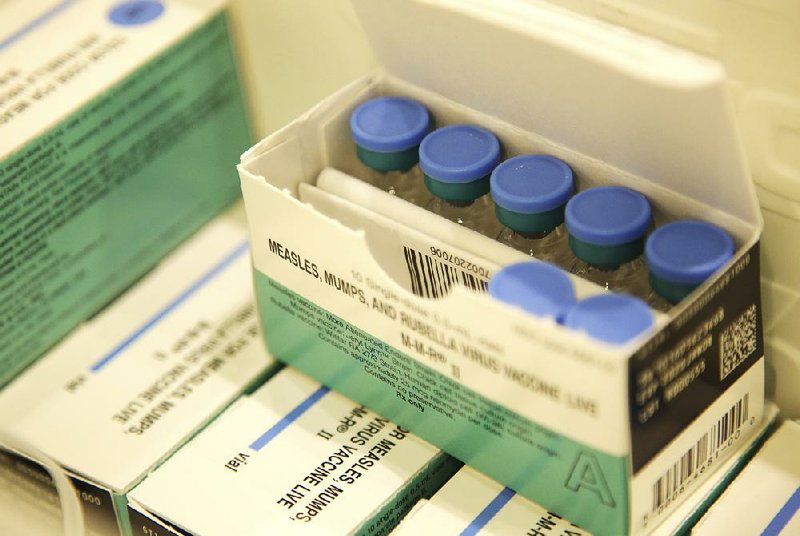FAYETTEVILLE -- The University of Arkansas, Fayetteville health center started to give second doses of the mumps, measles and rubella vaccine on Monday after nine confirmed mumps cases on campus, a university official said.
Two or three of the cases are still infectious but the others have recovered, said Zac Brown of the Pat Walker Health Center on campus. All the cases involved students, he said.
Brown said 407 students don't have current vaccinations. Of those, 312 students had only one MMR vaccination, and the other 95 students claimed exemptions, Brown said.
Fall enrollment is 27,559. Brown pointed out the percentage of students with two MMR vaccinations is 99.6%.
Trevor Williamson, athletic department tutor coordinator, sent an email Monday to tutors that said two student-athletes have been diagnosed with the mumps.
The state Department of Health issued a notice to students Friday saying they need to be immunized with at least two doses of the mumps vaccine.
Unvaccinated people are nine times more likely to get mumps than are people with two doses of the MMR vaccine, according to the Health Department.
The university in June revised a campus policy to state all incoming students, including transfers, must have two MMR vaccinations unless they have a medical exemption or an exemption as allowed by state law. State law allows for medical, religious and philosophical exemptions.
Brown said the change makes clear the policy applies to all incoming students, including graduate students and international students, not just incoming freshmen.
Mumps is a contagious disease caused by a virus, and is best known for the puffy cheeks and tender, swollen jaw it causes. The virus is easily spread through coughing and sneezing, as well as from sharing food, drinks and vaping devices. It may take up to 26 days for a person to get sick after they have been infected, according to a news release from the Pat Walker Health Center.
"We are taking every precaution necessary to ensure students, faculty and staff have the best information and resources available to protect themselves and others," Dr. Huda Sharaf, medical director for the health center, said in the release.
Dr. Jennifer Dillaha, the Health Department's director of immunizations, said health officials were on the university campus Monday to test and interview people with symptoms of mumps and to provide vaccines.
The department had not been able to link all nine cases, but there were a few epidemiological links, Dillaha said.
Danyelle McNeill, Health Department public information officer, said the department didn't know how many of the nine had been vaccinated.
Information for this article was contributed by Jaime Adame of the Arkansas Democrat-Gazette.
Metro on 11/26/2019
